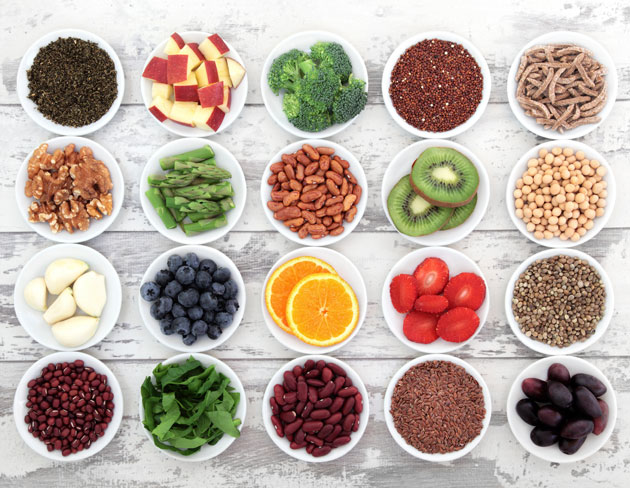The views expressed in our content reflect individual perspectives and do not represent the authoritative views of the Baha'i Faith.
Do not neglect medical treatment when it is necessary, but leave it off when health has been restored. Treat disease through diet, by preference… Abstain from drugs when health is good, but administer them when necessary. – Baha’u’llah, quoted in Baha’u’llah and the New Era, 1980 ed., p. 106.
Nutrition may not seem ‘spiritual,’ but it has roots deep in the Baha’i teachings. This series of essays provides a basic introduction to the Baha’i view of food and the part it plays in our lives; shows how the principles of the Baha’i Faith relate to the food choices we make; and suggests ways to put these spiritual principles into action.
In these short essays I’ll discuss my personal understanding of one approach to food and nutrition based on the Baha’i writings. As I wrote this, my thinking evolved drastically from my initial plan of approaching nutrition from a clinical point of view. While I studied our human relationship with food, I began to see the unity and interconnectedness of all the Baha’i teachings on this topic.
So how do we approach food and nutrition from a spiritual perspective?
While no specific Baha’i ‘diet’ exists, Baha’is do have some guidelines about where we – as a civilization – will move towards in the future. Baha’is see nutrition, then, as a process, individually and collectively, of moving towards health–not just for ourselves, but for every living thing on the planet.
The Baha’i teachings have no hard and fast laws regarding diet. So no one has any obligation to follow any of the following dietary suggestions, of course. But if we have the desire to explore more deeply these principles, we can move closer to understanding them in a new light.
First: we need food to survive, plain and simple. We can’t live without it.
But, our relationship with food goes far beyond mere survival. Food encompasses feelings of love, community, and connection. Culturally, through the ages, food played a role in keeping a group bonded together, and social traditions often passed down from generation to generation, usually centered around celebrations and feasts.
But now, beyond that, the food choices we make have a huge impact on every living thing – on other people, on animals, on plants, and on the environment. We need to embrace global thinking in the food choices we make. We are not just a family or a tribe or a village—we are one world, each of us citizens of a single planet.
We often think of food in self-centered ways. It might be to control our outward appearance – to be a certain weight; to fit into a certain size jeans; or to ‘look good’ to others. All of these thoughts are based on cultural and material perceptions from our culture. They are not based on our spiritual reality. So we tend to look at food from a self-centered view and not from a spiritual perspective.
So we might want to ask ourselves for the first time: Why do we eat? What is the purpose of choosing the foods we eat? If not to get six-pack abs, then why should we care about what we eat? In the Baha’i view:
Looking after one’s health is done with two intentions. Man may take good care of his body for the purpose of satisfying his personal wishes. Or, he may look after his health with the good intention of serving humanity and of living long enough to perform his duty toward mankind. The latter is most commendable. – Abdu’l-Baha, Star of the West, Vol. VIII, No. 18, p. 230.
Now we know why we should eat healthfully. But, since the Baha’i teachings don’t specify a specific diet, what next? Abdu’l-Baha did give us some glimmerings of where we need to go, as in this quotation:
What will be the food of the future? Fruit and grains. The time will come when meat will no longer be eaten. Medical science is only in its infancy, yet it has shown that our natural diet is that which grows out of the ground. The people will gradually develop up to the condition of this natural food. – Abdu’l-Baha, The Days in the Light of Akka, pp.8- 9.
Here Abdu’l-Baha refers not only to fruit and grains–in other writings, he speaks of legumes, nuts, oils, and vegetables as part of the diet humanity will eventually adopt.

















Comments
Sign in or create an account
Continue with Googleor